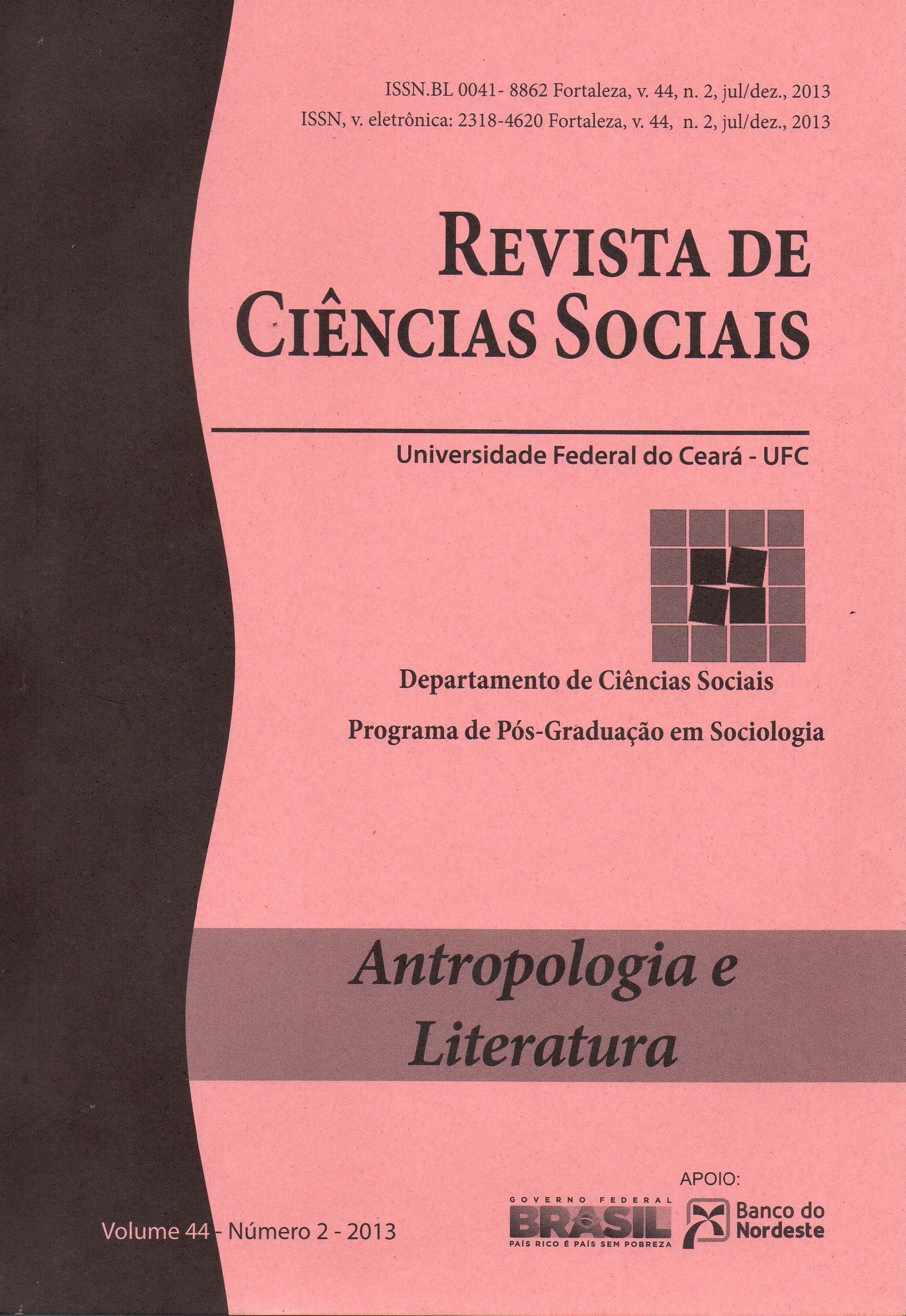Tell me about your Voyage: Michel Leiris
Keywords:
Michel Leiris, L’Afrique Fantôme, Narrative, ExperienceAbstract
Th e article examines Michel Leiris’ L’Afrique fantôme (1934). Leiris traveled as Dakar-Djibouti mission “secretary-archivist” in order to produce its story and to record its results. But if this story was already inscribed before it is written, because of the inescapable colonial narrative, Leiris get rid of it through the ephemeral day-to-day of his journal, the denial of a romance. However, a trip has to be told. Seeking another way to tell, it is noticed at his writing a surreal-ethnographic tangle, in which is undermined the assumption that self and other can come together in a coherent and stable narrative. As Leiris himself says in his prière d’insérer, “it’s up to the reader to discover the germs of a coming consciousness attained only well after the return.”References
BARTHES, Roland. “African Grammar”. In R. Barthes, Th e Eiff el Tower and
Other Mythologies, p. 103-109. New York: Hill and Wang, 1979.
CÉSAIRE, Aimé. Aimé Césaire: Th e Collected Poetry, traduzido para o inglês
por Clayton Eshleman e Annette Smith. Berkley: University of California
Press, 1983.
HARRIS, Wilson. Th e Whole Amour and Th e Secret Ladder. London: Faber
and Faber, 1973.
LEIRIS, Michel. L’Afrique fantôme. Reimpresso com uma nova introdução.
Paris: Gallimard, 1950 [1934].
LEIRIS, Michel. L’age d’homme. Paris: Gallimard, 1946. Traduzido para o
inglês por Richard Howard como Manhood. Berkley: North Point Press,
LEIRIS, Michel. La possession et ses aspects théâtraux chez les Ethiopiens de
Gondar. Reimpressão. Paris: Le Sycomore, 1980 [1958].
LEIRIS, Michel. Brisées. Paris: Mercure de France, 1966.
LEIRIS, Michel. Le ruban au cou d’Olympia. Paris: Gallimard, 1981.
QUEANEAU, Raymond. Contes e propos. Paris: Gallimard, 1981.
SEABROOK, William. L’ile magique. Paris: Firmin-Didot, 1929.
SEABROOK, William. Les secrets de la jungle. Paris: J. Haumont, 1931.
Downloads
How to Cite
Issue
Section
License
Autores que publicam nesta revista concordam com os seguintes termos:- Autores mantém os direitos autorais e concedem à revista o direito de primeira publicação, com o trabalho simultaneamente licenciado sob a Creative Commons Attribution License, que permite o compartilhamento do trabalho com reconhecimento da autoria do trabalho e publicação inicial nesta revista.
- Autores têm autorização para assumir contratos adicionais separadamente, para distribuição não-exclusiva da versão do trabalho publicada nesta revista (ex.: publicar em repositório institucional ou como capítulo de livro), com reconhecimento de autoria e publicação inicial nesta revista.
- Autores têm permissão e são estimulados a publicar e distribuir seu trabalho online (ex.: em repositórios institucionais ou na sua página pessoal) a qualquer ponto antes ou durante o processo editorial, já que isso pode gerar alterações produtivas, bem como aumentar o impacto e a citação do trabalho publicado (Veja O Efeito do Acesso Livre).



